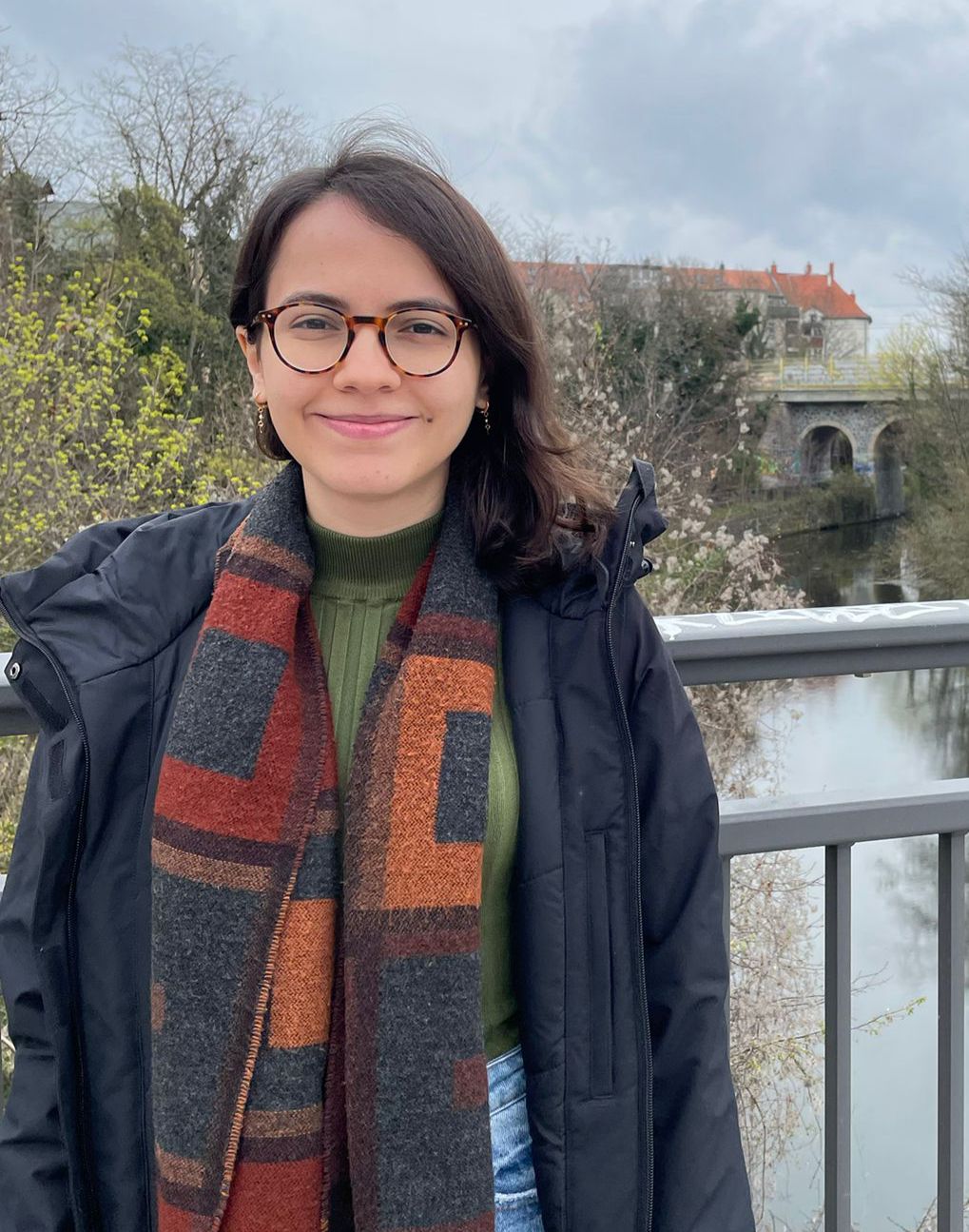Dr. Taís Maria Nunes Carvalho
Themenbereich Umwelt und Gesellschaft
Department Stadt- und Umweltsoziologie
Helmholtz-Zentrum
für Umweltforschung − UFZ
Permoserstr. 15
04318 Leipzig
Tel.: +49 152 12598536

Forschungsinteressen
- Methoden zur Analyse und Bewertung von Naturgefahren
- Natural language processing Methoden
- Datengesteuerte Ansätze in der Wasserwirtschaft
Beruflicher Werdegang
seit April 2023
Wissenschaftliche Mitarbeiterin, ScaDS.AI, Universität Leipzig
Gastwissenschaftlerin, UFZ, Leipzig
2019 - 2022
PhD Bauingenieurwesen - Wasserressourcen, Universidade Federal do Ceara, Brasilien
2017 - 2018
M.Sc. Bauingenieurwesen - Wasserressourcen, Universidade Federal do Ceara, Brasilien
2012 - 2016
B.Sc. Umweltingenieurwesen, Universidade Federal do Ceara, Brasilien
Publikationen
2022
- Carneiro, B. L. D. S., Souza Filho, F. D. A., Nunes Carvalho, T. M., Raulino, J. B. S. (2022). Hydrological risk of dam failure under climate change. Revista Brasileira de Recursos Hídricos, 27. https://doi.org/10.1590/2318-0331.272220220017
- Ribeiro, F. W., da Silva, S. M., de Souza Filho, F. D. A., Nunes Carvalho, T. M., & de M. Lopes, T. M. (2022). Diversification of urban water supply: an assessment of social costs and water production costs. Water Policy, 24(6), 980-997. https://doi.org/10.2166/wp.2022.012
- Nunes Carvalho, T. M., Lima Neto, I. E., Souza Filho, F. D. A. (2022). Uncovering the influence of hydrological and climate variables in chlorophyll-A concentration in tropical reservoirs with machine learning. Environmental Science and Pollution Research, 1-16. https://doi.org/10.1007/s11356-022-21168-z
- Nunes Carvalho, T. M., Souza Filho, F. D. A. (2022). Previsão sazonal de demanda residencial de água em Fortaleza. In: Souza Filho, Francisco de Assis, Reis Jr, Dirceu Silveira, & Galvão, Carlos de Oliveira. SECAS E CHEIAS: Modelagem e Adaptação aos extremos hidrológicos no contexto da variabilidade e mudança do clima. https://doi.org/10.5281/zenodo.6569311
2021
- Carvalho, T. M. N., & de Souza Filho, F. D. A. (2021). A data-driven model to evaluate the medium-term effect of contingent pricing policies on residential water demand. Environmental Challenges, 3, 100033. https://doi.org/10.1016/j.envc.2021.100033
- Carvalho, T. M. N., Souza Filho, F. A., Porto, V. C. (2021). Urban water demand modeling using machine learning techniques: case study of fortaleza, Brazil. Journal of Water Resources Planning and Management, 147(1), 05020026. https://doi.org/10.1061/(ASCE)WR.1943-5452.0001310
- Porto, V. C., de Souza Filho, F. D. A., Carvalho, T. M. N., Carvalho Studart, T. M., Portela, M. M. (2021). A GLM copula approach for multisite annual streamflow generation. Journal of Hydrology, 598, 126226. https://doi.org/10.1016/j.jhydrol.2021.126226
- Carvalho, T. M. N., & de Assis de Souza Filho, F. (2021). Variational Mode Decomposition Hybridized With Gradient Boost Regression for Seasonal Forecast of Residential Water Demand. Water Resources Management, 35(10), 3431-3445. https://doi.org/10.1007/s11269-021-02902-7
2020
- Nunes Carvalho, T. M., Silva, S. M. O. D., Araújo, C. B., Frota, R., Xavier, L. C., Bezerra, B., Souza Filho, F. D. A. D. (2021). Índice de vulnerabilidade à COVID-19: uma aplicação para a cidade de Fortaleza (CE), Brasil. Engenharia Sanitaria e Ambiental, 26, 731-739. https://doi.org/10.1590/S1413-415220200242
- Nunes Carvalho, T. M., de Souza Filho, F. D. A., Medeiros de Saboia, M. A. (2020). Performance of rainwater tanks for runoff reduction under climate change scenarios: a case study in Brazil. Urban Water Journal, 17(10), 912-922. https://doi.org/10.1080/1573062X.2020.1846063
2019
- Porto, V. C., Souza Filho, F. A., Nunes Carvalho, T. M., Cid, D. C., Reis, G. A. (2018). Application of Dual Stochastic Dynamic Programming in optimizing the short-term operation of the Jaguaribe-Metropolitano reservoir system. In: Souza Filho, F. A., Silva, S. M. O., Formiga-Johnsson, R.M., Nelson, D. R., Nauditt, A., Ribbe, L. Gestão Adaptativa do risco climático de seca. ISBN: 978-85-420
